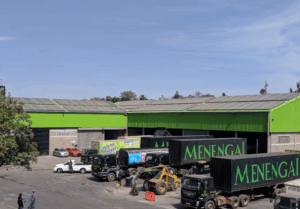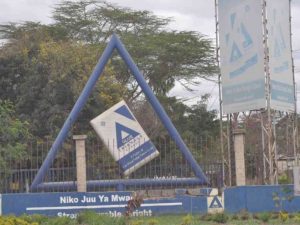Private Investors Swoop Into Rented Residential and Retail Properties

High Net Worth Individuals (HNWIs) in Kenya made some of the best returns of the world’s HNWIs in 2022 as they ramped up investments in rented residential and retail properties and reduced their positions in industrial property and development land, according to the 2023 attitudes survey issued with Knight Frank’s annual Wealth Report.
Kenyan HNWIs have held a greater proportion of their investment portfolios in property and bonds than is the norm globally.
In 2022, as energy prices and inflation rocked markets worldwide, many moved to increase those positions, with the proportion of HNWIs owning privately rented property rising from 44 percent to 70 percent, and the proportion owning retail properties rising from 41 percent in 2021 to 70 percent in 2022.
At the same time, only 25 percent of the wealth managers for Kenyan HNWIs reported their clients remained invested in logistics and industrial properties, compared with 44 percent a year earlier.
“The attitudes survey revealed a sharp portfolio shift in Kenya and Africa towards domestic markets, during this time of global turmoil. With Kenyan HNWIs also tend to hold a far higher proportion of their wealth in property and bonds than the global average for HNWIs. This is playing a critical role in social provision, funding government borrowing and driving the growth of low-cost housing schemes, rented homes, shops, food (through agricultural investments), healthcare and education development,” Mark Dunford, CEO Knight Frank Kenya, said.
Percentage of wealth managers handling HNWI client investments in the listed sectors 2023/2022
| Offices | 30% | 22% |
| Hotels and leisure | 40% | 41% |
| Retail | 70% | 41% |
| Logistics and industrial | 25% | 44% |
| Lifesciences | 10% | 3% |
| Student housing | 25% | 25% |
| Retirement | 35% | 41% |
| Healthcare | 35% | 16% |
| Agricultural | 45% | 38% |
| Residential private rented | 70% | 44% |
| Development land | 50% | 59% |
| Data centres | 5% | 3% |
| Education | 25% | 19% |
| Other (please specify) | 0% | 3% |
In terms of the portfolio balance, property and bonds accounted for 66 percent of Kenyan HNWI’s holdings in 2022, while only 18 percent of their assets were held in stock market equities and just 5 percent in venture capital. This contrasted with a global position, where HNWIs worldwide held an average of 26 percent of their assets in stock markets in 2022, and 9 percent in venture capital and private equity.
HNWI portfolio balance for Kenya, the regions, and globally
Share of investment portfolio in: Kenya Africa Asia Australasia Europe Americas Middle East Global average Equities 18% 17% 26% 21% 28% 33% 25% 26% Commercial property directly – ownership of assets 25% 26% 21% 24% 19% 10% 24% 21% Bonds 26% 25% 18% 8% 15% 21% 14% 17% Private equity/venture capital 5% 5% 5% 12% 11% 15% 11% 9% Commercial property indirectly through funds 11% 11% 7% 7% 9% 5% 7% 8% Other 7% 7% 7% 13% 5% 3% 11% 7% Commercial property indirectly through REITs 4% 4% 7% 4% 4% 4% 2% 5% Investment of passion e.g. Art, Cars, Wine etc. 3% 3% 5% 7% 5% 6% 3% 5% Gold 1% 1% 4% 2% 3% 2% 2% 3% Crypto assets 1% 1% 1% 2% 1% 4% 1% 2%
Kenyan wealth managers also reported that private rented property, likewise, dominated their clients’ investment plans for the year ahead, with 60 percent planning to invest in private rentals, followed by 50 percent in retail.
“The property balance in Africa and Kenya’s portfolio mix, and the reduced exposure to equities and venture capital, served in 2022 to make African investments far more resilient, in sectors that were not immediately impacted through reduced profits from the surges in energy prices, and input inflation. As a result, nearly two-thirds of Kenyan and African HNWIs increased their wealth in 2022, compared with only 40 percent of global HNWIs,” Liam Bailey, Global Head of Research and Editor-in-Chief of The Wealth Report at Knight Frank, said.







